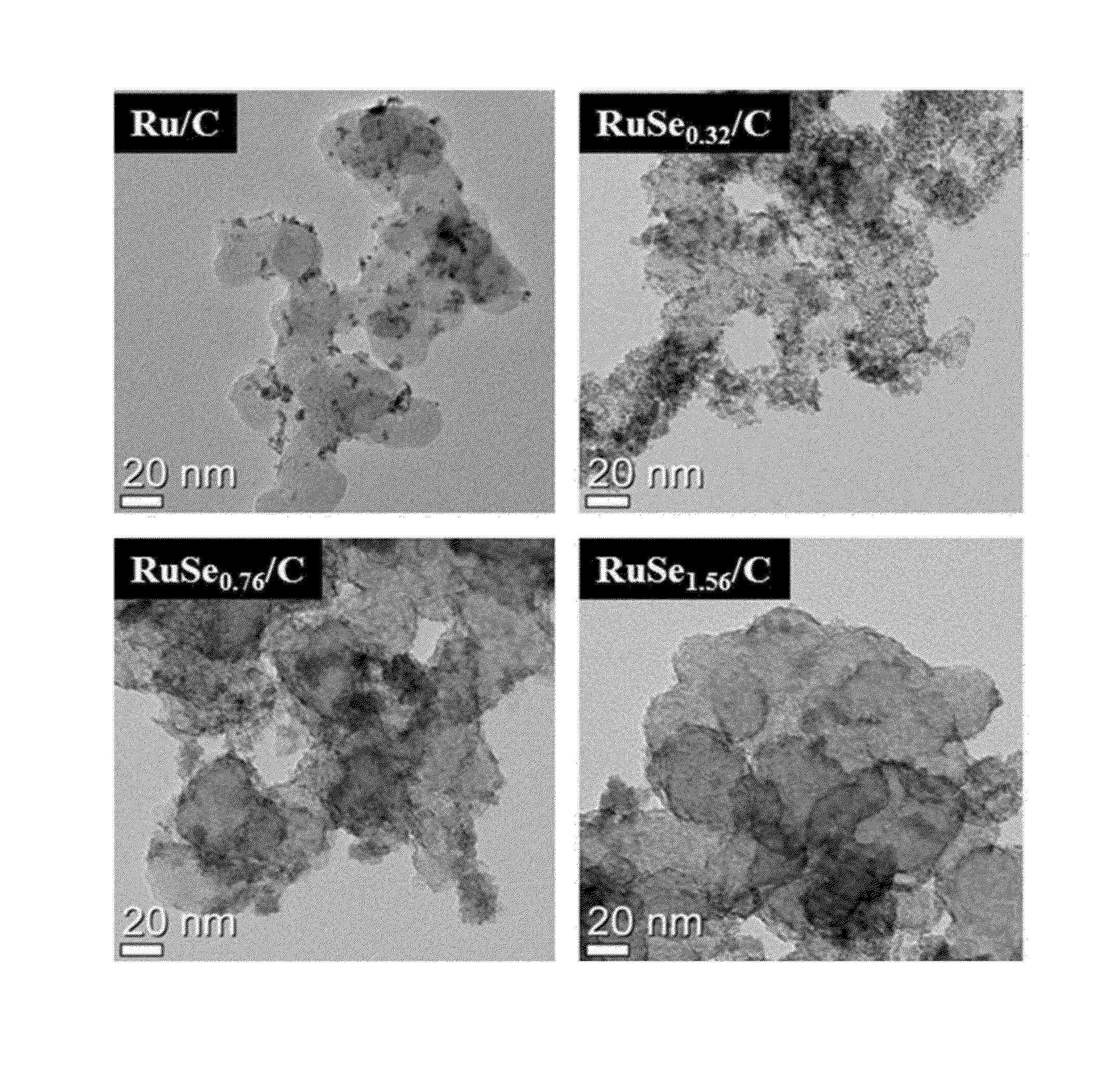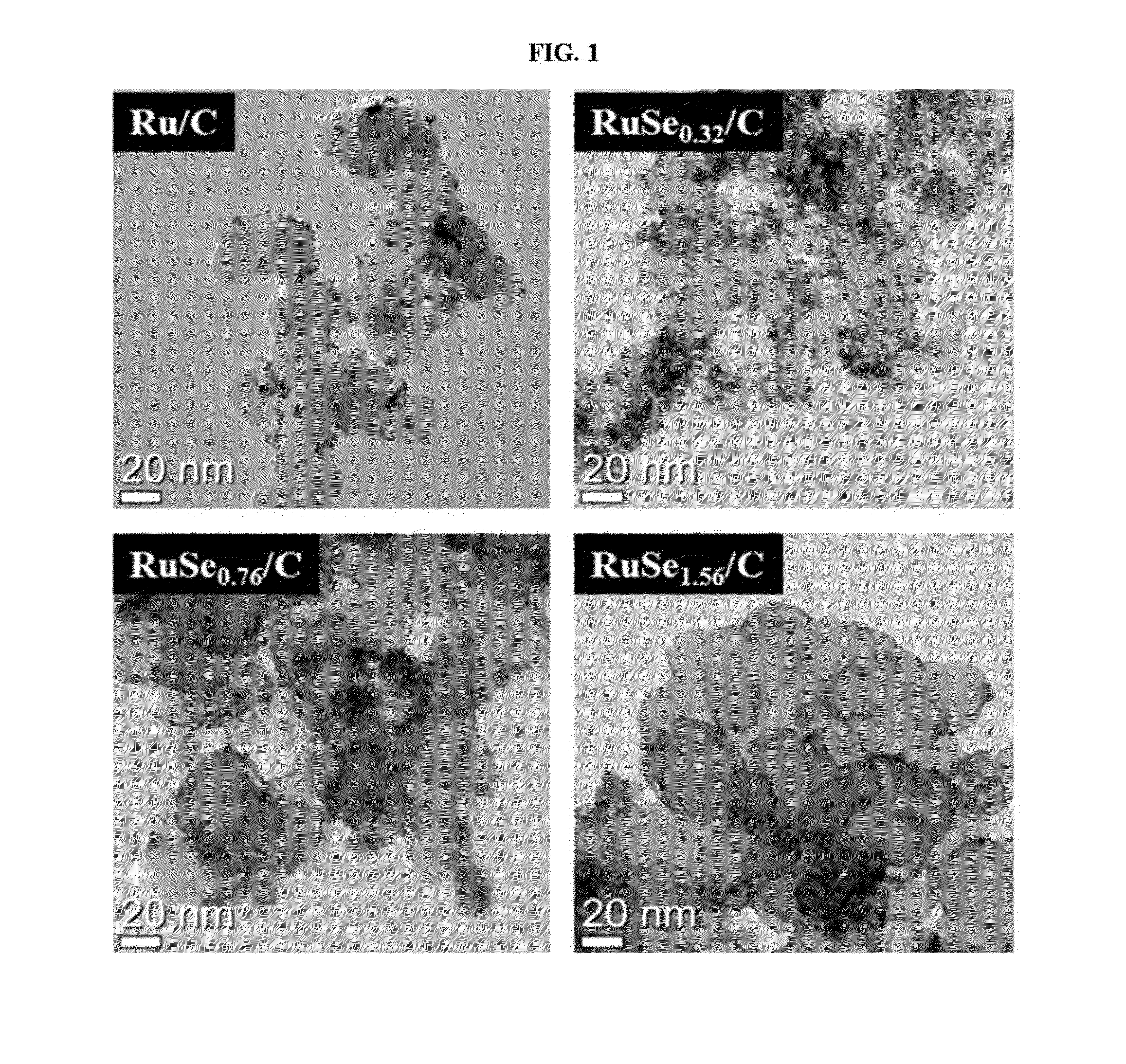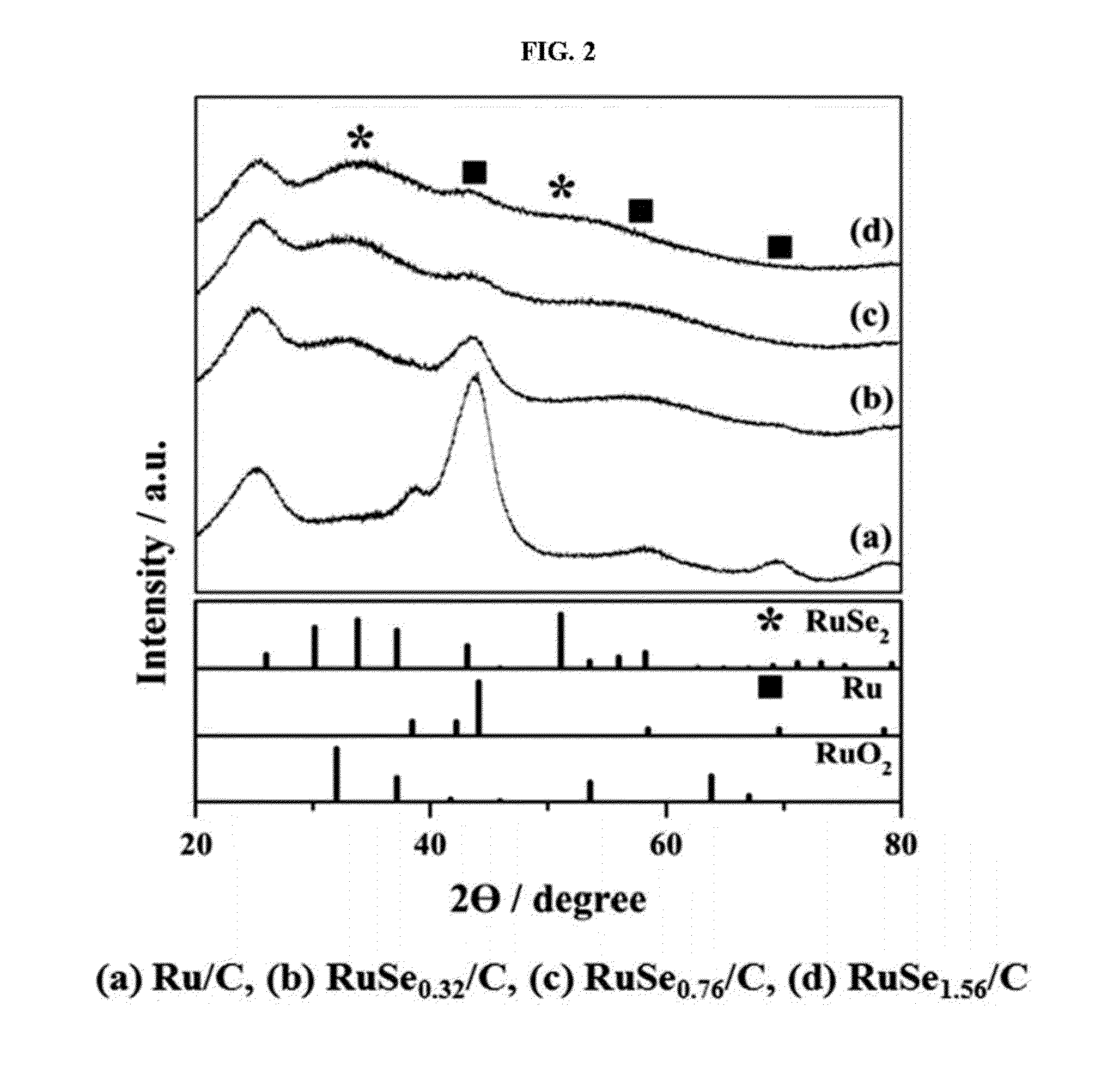Polymer electrolyte membrane fuel cell including complex catalyst and method for producing the complex catalyst
a technology of polymer electrolyte and fuel cell, which is applied in the manufacture of cell components, physical/chemical process catalysts, and final product products, etc., can solve the problems of increasing the amount of noble metal catalysts such as platinum, and achieves improved long-term operation, power generation efficiency, and operational stability. simple
- Summary
- Abstract
- Description
- Claims
- Application Information
AI Technical Summary
Benefits of technology
Problems solved by technology
Method used
Image
Examples
example 1
Production of Complex Catalyst Including Ruthenium and Selenium in Atomic Ratio of 1:0.32
[0049]150 mL of triple distilled water and 0.1 g of a carbon carrier (Vulcan XC-72) were subjected to sonication in a reactor for 1 h to disperse the carbon carrier in the distilled water. To the dispersion were added 0.051 g of RuCl3 and 0.009 g of SeO2. The mixture was heated to 80° C. and kept at this temperature for 1 h. During heating, argon gas was allowed to flow at a rate of 200 cc / min to remove oxygen from the reactor. After 1 h, the mixture was cooled to room temperature. 20 mL of an aqueous solution of 0.204 g of NaBH4 and 0.08 g of NaOH was added dropwise over 2 h while allowing argon gas to flow into the reactor. The resulting reaction product as a black precipitate was filtered, washed with 1 L of triple distilled water, and dried at room temperature for 24 h.
example 2
Production of Complex Catalyst Including Ruthenium and Selenium in Atomic Ratio of 1:0.76
[0050]A complex catalyst was produced in the same manner as in Example 1, except that 0.018 g of SeO2 was used instead of 0.009 g of SeO2.
example 3
Production of Complex Catalyst Including Ruthenium and Selenium in Atomic Ratio of 1:1.56
[0051]A complex catalyst was produced in the same manner as in Example 1, except that 0.036 g of SeO2 was used instead of 0.009 g of SeO2.
PUM
| Property | Measurement | Unit |
|---|---|---|
| Fraction | aaaaa | aaaaa |
| Temperature | aaaaa | aaaaa |
| Ratio | aaaaa | aaaaa |
Abstract
Description
Claims
Application Information
 Login to View More
Login to View More - R&D
- Intellectual Property
- Life Sciences
- Materials
- Tech Scout
- Unparalleled Data Quality
- Higher Quality Content
- 60% Fewer Hallucinations
Browse by: Latest US Patents, China's latest patents, Technical Efficacy Thesaurus, Application Domain, Technology Topic, Popular Technical Reports.
© 2025 PatSnap. All rights reserved.Legal|Privacy policy|Modern Slavery Act Transparency Statement|Sitemap|About US| Contact US: help@patsnap.com



